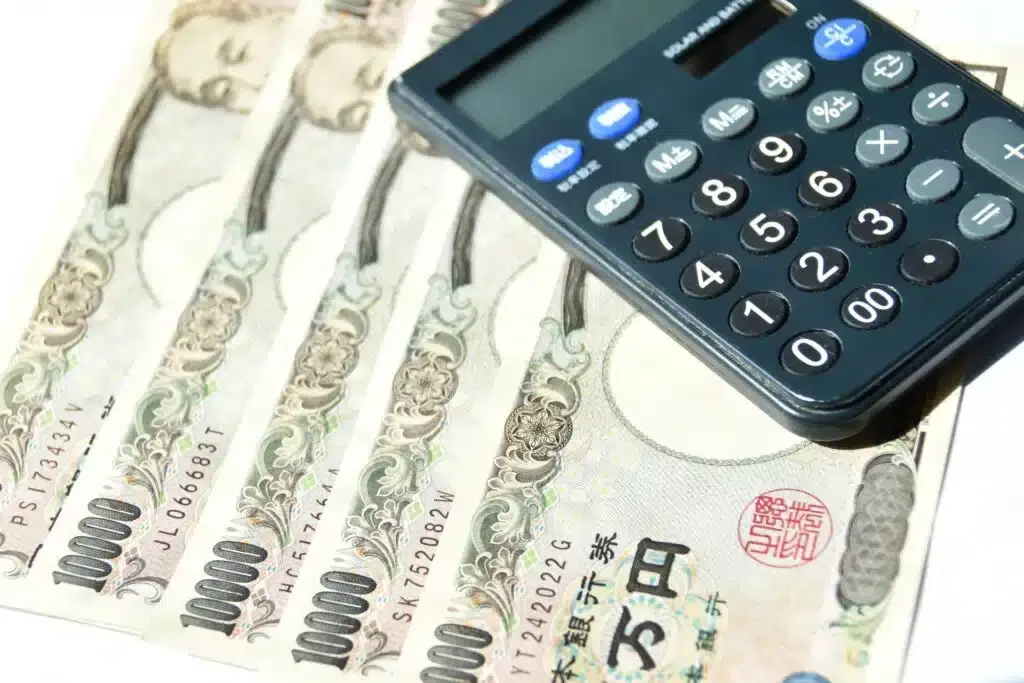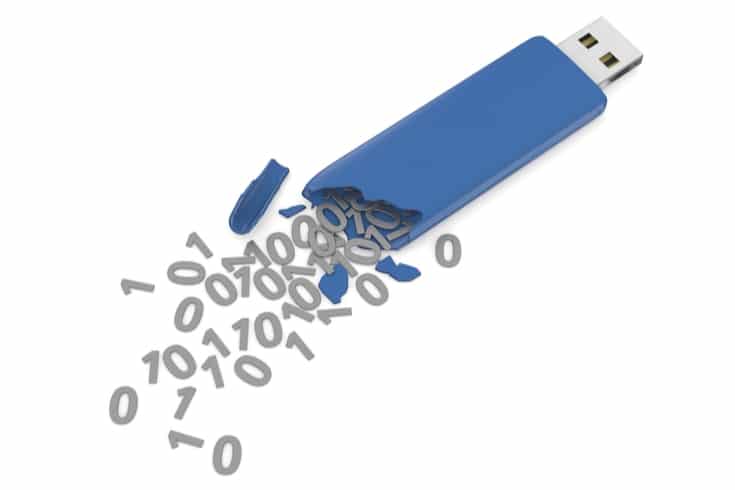Injunction and Nullity of Company Splits under Japanese Corporate Law: Analysis of the Legal Framework and Case Law

Company splits under Japanese Corporate Law are an extremely important means in corporate reorganization strategies. They are utilized for a variety of purposes, including business selection and concentration, internal group restructuring, and as an alternative to business transfers in M&A. However, due to their nature, company splits can potentially have a significant impact on the company’s assets, business, and the rights of stakeholders such as shareholders and creditors. Consequently, Japanese Corporate Law sets forth strict procedural and substantive requirements for implementing company splits, and legal remedies are available to protect stakeholders if these requirements are not adequately met.
This article focuses on the particularly important legal remedies of “injunction against company splits” and “invalidation of company splits,” detailing their legal frameworks, specific requirements, and related Japanese case law. An injunction against company splits is a preventive measure to stop the execution of an improper split before it is carried out, as stipulated in Article 804 of the Japanese Corporate Law. On the other hand, the invalidation of a company split is a retrospective measure that nullifies the legal effect of a company split that has already taken effect, with its basis in Article 814 of the Japanese Corporate Law.
These legal measures are essential for ensuring the legality and fairness of company splits and for protecting the rights of stakeholders. They are particularly important for foreign investors considering investments in the Japanese market, executives of companies operating in Japan, or legal department personnel, as understanding these remedies within the Japanese legal system is crucial for making appropriate business judgments and risk management. Grasping the risks associated with improper company splits and the legal countermeasures against them is indispensable knowledge for avoiding unforeseen legal disputes and supporting the sustainable growth of a company.
This article aims to provide readers with a deep understanding of these advanced concepts in Japanese Corporate Law by focusing on the specific legal remedies of injunction and invalidation, while keeping the basic explanation of company splits to a minimum. It clarifies the legal nature of each claim for injunction and invalidation, the grounds for them under Japanese Corporate Law, and the specific circumstances in which they are exercised. Furthermore, it delves deeply into how these legal measures have been interpreted and applied in Japanese courts, citing specific case law. Ultimately, it compares the legal and practical differences between injunction and invalidation, considering which option is appropriate in various situations.
Injunction Against Company Splits in Japan
An injunction against a company split is a preventative legal measure designed to avert the implementation of an inappropriate company split before it takes effect. It is sought with the purpose of halting the execution of a company split, but only when specific requirements are met prior to the effective date of the split.
Article 804, Paragraph 1 of the Japanese Companies Act stipulates that shareholders may request an injunction against a company split before the effective date if certain specific requirements are met. This provision is intended to preventatively stop the implementation of a company split that could unjustly harm the interests of shareholders.
The right to file for an injunction is limited to those who are shareholders of the company up until the effective date of the company split. The grounds for the request are primarily defined by the Japanese Companies Act as follows:
- If the procedure or content of the company split violates laws or the company’s articles of incorporation.
- If the company split is carried out in a significantly unfair manner.
- If the company split cannot achieve its purpose even when considering the disadvantages to the shareholders.
When an injunction request is made, the court will comprehensively consider the degree of disadvantage suffered by the shareholders due to the company split, the purpose of the split, and other circumstances to determine the appropriateness of the injunction. As an injunction can have a significant impact on the company’s business activities, the court is required to make a careful judgment.
Analysis of Judicial Precedents on Injunctions in Japan
Injunction requests to halt company splits inherently involve direct intervention in a company’s management decisions. Therefore, Japanese courts tend to interpret the requirements for such injunctions strictly.
Tokyo District Court Decision, February 3, 1991 (Heisei 3)
This decision addressed an injunction request to stop a company split. The court ruled that for an injunction to be granted, the procedure or content of the company split must violate laws or the articles of incorporation, and the violation must significantly harm shareholders’ rights. Furthermore, the court stated that due to the significant impact on company management, the requirements for an injunction should be interpreted strictly. This decision clarifies that injunction requests have stringent requirements and that mere formal violations are unlikely to be sufficient for an injunction. Once a company split is decided and moves into the execution phase, interrupting the process can cause considerable confusion and damage not only to the company but also to related business partners and employees. It is believed that the Japanese judiciary prioritizes respect for management decisions and the predictability of corporate activities. This strict requirement can be understood as a result of balancing shareholder protection with the freedom of corporate activities.
Tokyo District Court Decision, November 20, 1998 (Heisei 10)
In this case, the issue was the disadvantage to shareholders in a company split. The court showed an attitude that emphasizes the importance of whether the disadvantage to shareholders is objectively significant when determining if a company split is conducted in a markedly unfair manner. In particular, the fairness of the split consideration was suggested as a crucial factor. If the calculation of the split consideration is inappropriate, the possibility of an injunction request increases, highlighting the importance of fair consideration calculation in the planning stage of a company split. Article 804, Paragraph 1, Item 2 of the Japanese Companies Act includes “markedly unfair methods” as one of the grounds for injunctions, but this concept is abstract. What constitutes “markedly unfair” must be considered comprehensively based on the specific circumstances of each case, especially the valuation of the business to be split and the presence of conflicts of interest among shareholders. This abstract nature allows courts to make flexible judgments according to individual cases, while it also lowers predictability for claimants. In practice, to prove this requirement, specialized financial analysis and valuation, as well as detailed argumentation and proof of the factual circumstances, are essential.
Invalidity of Company Splits in Japan
The invalidity of a company split is a legal remedy that retroactively overturns the legal status of a company split that has already taken effect. It is pursued when there are significant defects in the procedures or content of the company split, in order to negate its effects.
Article 814, Paragraph 1 of the Japanese Companies Act stipulates that after the effects of a company split have occurred, an action for invalidity (a lawsuit claiming invalidity) may be filed. Those eligible to file such a lawsuit include the companies involved in the split, shareholders, creditors, or any parties whose rights have been adversely affected by the split, offering a broader range of claimants compared to a claim for injunction.
An action for invalidity must be filed within six months from the effective date of the company split. This period serves as an exclusionary term to promote the early stabilization of the legal status resulting from the company split, and once this period has passed, it is no longer possible to file an action for invalidity.
An action for invalidity is only recognized if there are significant defects in the procedures or content of the company split that violate laws or the articles of incorporation. While the Japanese Companies Act does not specify the exact grounds for invalidity, case law and academic opinion have identified the following reasons:
- Significant procedural defects:
- Non-existence or defects in the resolution of the shareholders’ meeting (such as significant defects in the convocation procedures or the content of the resolution).
- Non-performance or significant defects in creditor protection procedures.
- Failure to create or provide a company split plan.
- Significant substantive defects:
- When the consideration for the split is grossly unfair.
- When the purpose of the company split is illegal or improper.
The court considers not only the presence of grounds for invalidity but also the impact of recognizing invalidity on legal stability, the protection of stakeholders’ trust, and the severity of the defects, making a comprehensive judgment.
Analysis of Japanese Case Law on Nullification
Claims of nullification can overturn the legal effects of a corporate division that has already been executed, and their impact is extensive. Therefore, Japanese courts strictly judge the “severity” of the grounds for nullification.
Tokyo District Court Decision, January 27, 2006 (Heisei 18)
This decision concerned a case where flaws in the creditor protection procedures during a corporate division were at issue. The court ruled that the creditor protection procedures under Japanese Corporate Law (such as Articles 789 and 799 of the Japanese Corporate Law) are mandatory provisions to protect creditors’ rights, and significant flaws in these procedures can be grounds for nullification of the corporate division. However, the court suggested that minor defects might not lead to nullification. This decision emphasized the importance of creditor protection procedures and indicated that their non-compliance could directly lead to the nullification of a corporate division. Japanese Corporate Law places great emphasis on creditor protection, and any deficiencies in these procedures could question the validity of the entire corporate division, even if other requirements are met.
Osaka District Court Decision, March 18, 2010 (Heisei 22)
In this case, the issue was defects in the shareholders’ meeting resolution regarding a corporate division. The court ruled that if there are significant defects in the shareholders’ meeting resolution that fail to meet the requirements for a special resolution necessary for approving a corporate division, then the corporate division is invalid. In particular, violations of the convocation procedures or significant errors in the content of the resolution could be grounds for nullification. This decision reaffirmed that the legality of the shareholders’ meeting resolution is fundamental to the validity of a corporate division.
Tokyo District Court Decision, July 10, 2015 (Heisei 27)
This decision dealt with a case where the fairness of the consideration for the division was in question. The court indicated that if the consideration for the division is objectively and significantly unfair, it could be a substantive ground for nullification of the corporate division. However, the court stated that this determination requires a rigorous examination from multiple perspectives, including expert evaluations and market price fluctuations. This decision clarified that the fairness of the division consideration could be a ground for nullification, highlighting its importance from the perspective of protecting shareholders’ economic interests.
Trends Indicated by Case Law
These cases demonstrate that although Japanese Corporate Law does not specifically enumerate grounds for nullification, both procedural defects (creditor protection, shareholders’ meeting resolution) and substantive defects (unfairness of the division consideration) are recognized as grounds for nullification. However, the “severity” of the defects is always questioned. For example, minor deficiencies in creditor protection procedures may not lead to nullification. This suggests that courts, given the significant consequences of retroactively overturning the effects of a corporate division, strictly evaluate the nature, degree, and impact of the defects on stakeholders when making their decisions. In practice, those who file a claim for nullification must not only point out legal violations but also concretely prove that these violations have the “severity” to shake the very foundation of the corporate division.
Furthermore, Article 814, Paragraph 1 of the Japanese Corporate Law stipulates that a claim for nullification must be filed within six months from the effective date of the corporate division. This short period means that stakeholders wishing to argue for nullification must quickly gather information and conduct legal reviews. This is particularly challenging when claiming substantive defects, such as the unfairness of the division consideration, which requires expert evaluation and sufficient preparation within this timeframe. This time limitation strongly reflects the Japanese legal system’s emphasis on the legal stability of executed corporate divisions and also serves to prevent the abuse of nullification claims.
Comparison of Injunction and Nullification Under Japanese Corporate Law
Injunction and nullification are both legal remedies against improper corporate splits, but they have clear differences in their objectives, claimants, timing of litigation, effects, and practical features. Understanding these differences is essential for devising an appropriate legal strategy.
The purpose of an injunction is to prevent an improper corporate split from occurring as a preventative measure, whereas the purpose of nullification is to retroactively eliminate the legal effect of an already effective improper corporate split as a remedial action. This difference in the timeline significantly impacts the strategic implications of each legal measure.
There are also differences in the claimants. Only shareholders can file for an injunction, while the nullification lawsuit can be filed by the companies involved in the corporate split, shareholders, creditors, or those whose rights are harmed by the corporate split. The range of claimants for nullification is broader.
As for the timing of litigation, an injunction must be filed before the effective date of the corporate split, while nullification must be filed within six months from the effective date of the corporate split. This six-month period is an exclusionary period intended to stabilize the legal status created by the corporate split quickly.
In terms of effects, if an injunction claim is granted, the effectiveness of the corporate split is prevented. On the other hand, if a nullification lawsuit is granted, the corporate split becomes null and void retroactively. This has a wide-ranging impact on the parties involved, as it creates a legal effect as if the corporate split never existed. A nullification judgment has erga omnes effect and affects third parties as well.
Regarding practical differences, an injunction requires predicting and proving future disadvantages, making it tend to have a higher burden of proof than nullification. Nullification involves proving already occurred defects, so the facts may be relatively easier to establish. The impact on the company also differs. An injunction prevents the implementation of the corporate split itself, which can have a significant impact on the company by thwarting its plans. Nullification overturns an already implemented split, potentially causing more complex effects such as business reorganization and contractual confusion. In particular, in nullification lawsuits, defects in creditor protection procedures often become a significant point of contention.
The following table summarizes the main differences between injunction and nullification in corporate splits.
| Aspect | Injunction of Corporate Split (Article 804 of the Japanese Companies Act) | Nullification of Corporate Split (Article 814 of the Japanese Companies Act) |
| Purpose | Preventative measure to prevent the execution of an improper corporate split | Remedial action to retroactively eliminate the legal effect of an effective improper corporate split |
| Claimants | Shareholders only | Companies involved in the corporate split, shareholders, creditors, or those harmed by the corporate split |
| Timing of Litigation | Before the effective date of the corporate split | Within six months from the effective date of the corporate split |
| Main Reasons | Violations of laws or articles of incorporation, significantly unfair methods, cases where the purpose cannot be achieved even considering the disadvantage to shareholders | Significant violations of laws or articles of incorporation (defects in shareholder meeting resolutions, defects in creditor protection procedures, unfairness of split consideration, etc.) |
| Effects | Prevents the effectiveness of the corporate split | Renders the corporate split null and void retroactively (with erga omnes effect) |
| Practical Features | Significant intervention in management decisions, strict requirements, high burden of proof. | Overturns an already occurred legal status, wide-ranging impact, important to balance with legal stability. |
The choice between injunction and nullification is greatly influenced by the difference in timing, which affects the strategy. An injunction can prevent future confusion by stopping the execution of a corporate split when deficiencies are discovered during the planning stage. However, its requirements are strict, and there are significant time constraints. On the other hand, nullification shakes the legal stability of an already executed split, and while courts make more cautious decisions, a prompt response is required due to the limited litigation period. If shareholders suspect unfair valuation of consideration during the planning stage of a corporate split, they may consider an injunction, but due to the difficulty of proving it, they may switch to a nullification lawsuit after the effect or consider both as part of a multifaceted strategy. From the company’s perspective, an injunction claim could force a complete review of business plans, highlighting the increased importance of preventive legal due diligence.
Furthermore, creditor protection procedures (such as Articles 789 and 799 of the Japanese Companies Act) are significant procedural requirements in corporate splits, and their defects can be grounds for nullification, as indicated by precedents. While “defects in creditor protection procedures” are not explicitly stated as a reason for injunction, they may be included under “violations of laws or articles of incorporation.” This suggests the critical importance of creditor protection procedures in determining the validity of a corporate split. Since corporate splits transfer company assets, there is a risk of harming creditors’ interests, and the Japanese Companies Act places great emphasis on creditor protection. If there are deficiencies in these procedures, the validity of the entire corporate split may be questioned, even if other requirements are met. Managers and legal professionals must pay utmost attention to the proper implementation of creditor protection procedures.
Summary
In this article, we have provided a detailed explanation of two important legal remedies under Japanese corporate law: injunctions against company splits and lawsuits for the nullification of such splits. We discussed the legal basis, requirements, and specific Japanese case law examples. An injunction against a company split is a preventative measure that stops the effectuation of an improper split before it occurs, serving to protect shareholders’ rights. However, the requirements are strict, and courts tend to make cautious decisions considering the impact on the company’s management discretion. On the other hand, a lawsuit for the nullification of a company split is a retrospective measure that nullifies the legal effect of a split that has already taken effect, and is recognized in cases of significant legal violations or substantive defects. In particular, defects in the resolution of the shareholders’ meeting, failure to perform creditor protection procedures, and unfair split consideration can be significant grounds for nullification. These two legal measures are essential safety nets established by Japanese corporate law to ensure the legality and fairness of company splits and to protect the rights of stakeholders. For foreign investors and managers, a deep understanding of these systems is extremely important in formulating M&A and organizational restructuring strategies in Japan.
Monolith Law Office possesses extensive experience and deep expertise in Japanese corporate law, especially in organizational restructuring, including company splits. We have a proven track record of providing comprehensive legal services to a wide range of clients, both domestic and international, from legal advice in the planning stages of a company split to litigation support for injunctions and nullification lawsuits. Our firm includes multiple professionals who are qualified as Japanese attorneys and also hold foreign legal qualifications, and are English speakers, enabling smooth communication in both Japanese and English. This allows us to clearly and accurately explain complex legal issues and propose optimal legal strategies to foreign clients unfamiliar with the Japanese legal system. Shareholders, managers, or legal department members facing legal challenges related to company splits are encouraged to consult with Monolith Law Office, which possesses specialized knowledge and practical experience in injunctions and nullification under Japanese corporate law. We are committed to being a reliable legal partner in achieving your business goals.
Category: General Corporate





















